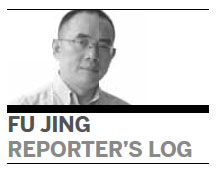Beijing, Brussels bilateral relations

With most officials in Brussels enjoying summer retreats, Trade Commissioner Karel De Gucht has grabbed headlines by announcing an "amicable solution" for the probe over China's solar panel exports to Europe.
With unusual and friendly wording, De Gucht, who in the past has tried to lecture China over "game rules", has peacefully ended the one-year bout, which is related to more than 400,000 Chinese jobs and 250,000 European jobs.
I clearly remember a big Reuters story in early September 2012 saying that Brussels would start an anti-dumping investigation over China's solar panel exports. That report started the long-running coverage of the pros and cons of the multi-billion-dollar trade probe.
The compromises made by both sides have protected jobs, a fundamental success for Europe, which is mired in a recession, and China, which is seeing an economic slowdown.
The agreement has stopped Brussels from levying harsh punitive tariffs on China's solar exporters starting on Aug 6. If that happened both sides would have entered a trade war.
Instead, Chinese manufacturers will be able to sell their products with a minimum price to allow Brussels to protect European companies, which only provide a small number of jobs because the manufacturing of solar panels has basically been transferred to China.
Clearly, China and Europe have been closely interlocked in a chain of solar panel production and installation for several years. China's efficient manufacturing and relatively cheaper products have helped Europe become the pioneer of green energy globally and Europe should be credited for these initiatives. This is the big picture. The two sides have great potential to expand this partnership beyond Europe.
Fortunately, the amicable solution has avoided the escalation of trade frictions and a possible trade war.
Meanwhile, China has decided to expand its own market for solar panel installations and I think this also means huge opportunities for both the Chinese and European solar industries, which are in a relation involving upstream and downstream chains and have built up a deep understanding, which politicians didn't see.
Brussels trade regulators should have been aware of this. In the past year, I had numerous talks with scholars and politicians over the evolution of the dispute and several of them have shed light on the matter.
And many others have said that the two sides should focus on investment pacts and feasibility studies for free trade talks after dealing with the trade dispute.
Despite the avoidance of the escalation of the trade frictions, we still need time and patience to put the bilateral relationship on a robust path.
This is mainly because the European Union has entered into a leadership transition period until next year, after China successfully filled its leadership positions in March.
So, Beijing needs to wait for Brussels to take bilateral ties into the fast lane, if there is one.

























